
Jabbed Blood: A Dilemma
Eighteen months ago, in June 2021, VFF published an article spotlighting new research on the discovery of vaccine-induced spike protein in the blood of the recently vaccinated. The study was pertinent as our health experts had publicly stated that the vaccine solution and subsequent spike protein production didn’t travel beyond the injection site. Vaccine-induced spike protein, mRNA, and lipid nanoparticles are not meant to make their way into the blood, yet they did.
We shared the research with a senior journalist hoping he might do the right thing for science and humanity by sharing the evidence. Instead, he gathered his ‘expert’ friends and responded publicly with ridicule.
The New Zealand Blood Service was contacted to ask about the safety measures they were taking to screen and label donated blood following the discovery of spike protein in vaccinated individuals’ plasma. They didn’t want to know.
They still don’t want to know.
Recent events have thrust the issue of the safety of Covid-19-vaccinated blood donors into the spotlight.
So-called experts continue to skirt the real issues, erecting strawmen here, there, and everywhere to avoid discussing the genuine concerns troubling the family at the centre of this debate.
Discussion & Debate
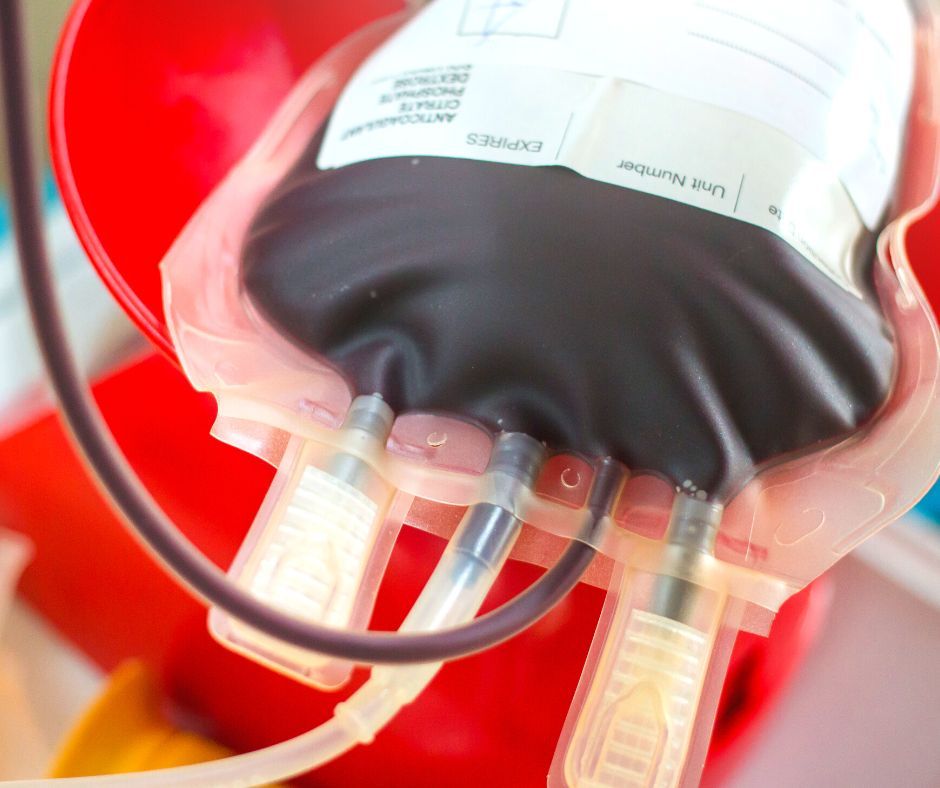
There is a discussion to be had on this matter. Talking through the issues would not give ‘false balance’ to ‘misinformation.’
There is relevant science to be shared and debated.
On this page, you will find the following:
- Reasons why we should investigate the safety of blood donations from vaccinated individuals.
- A range of research highlighting scientific discoveries that bring the safety of blood donation from Covid vaccine recipients into question.
- A sample template letter to use when contacting the NZ Blood Service with your concerns.
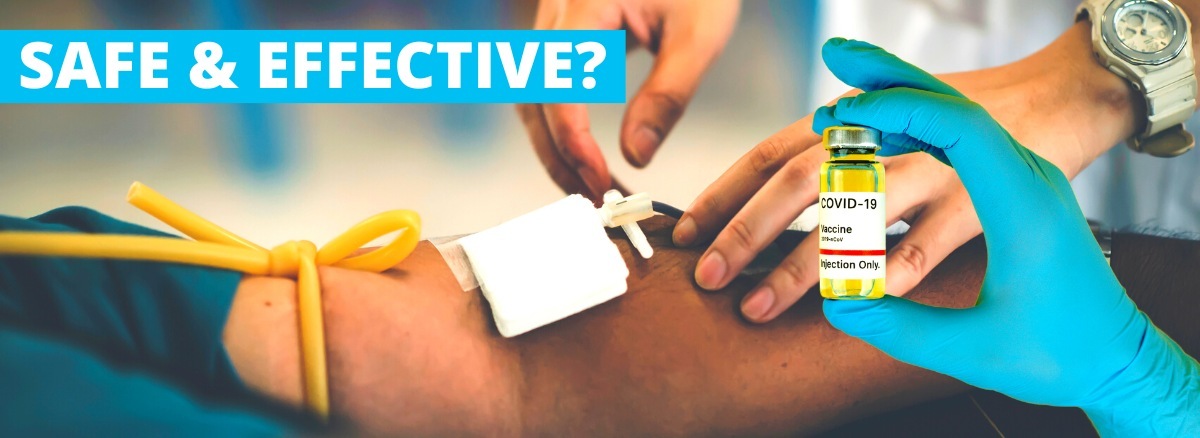
During the early weeks and months of the Covid vaccine rollout, experts constantly assured the public that the vaccine was well-tested, safe, and effective. The Government and media roundly rejected the notion that the world’s citizens were unofficial participants in an unmonitored 4th stage clinical trial.
Definitive statements from experts on radio interviews, zoom calls, and in newspaper articles promised that the vaccine solution remained in the deltoid muscle and did not make its way into the blood of vaccine recipients. Further comments explained that the mRNA was short-lived and, alongside the other vaccine components, was cleared from the body within days.
They were wrong.
They were wrong because they based their opinions on assumptions instead of pursuing solid evidence.
You cannot find what you do not seek – the absence of evidence does not equal evidence of absence.
Experts and media continue to draw similarities with existing vaccines, as though the technology is comparable. Such comparisons fail in the scientific stakes, like comparing apples with Frankenstein.
Kiwis need numbers, data, and evidence. People should be aware that the NZ public is being invited to trust reassurances and appeals to authority in place of scientific proof.
The Precautionary Principle
The precautionary principle is a broad epistemological, philosophical and legal approach to innovations with the potential to cause harm when extensive scientific knowledge is lacking. It emphasises caution, pausing, and review before leaping into new innovations that may prove disastrous.
Science has been playing ‘catch up’ for two years to amass safety data for the mRNA Covid vaccines due to the warp-speed development and rollout to the world’s population. Pfizer’s placebo control group was offered the vaccine after two months, effectively ending the potential for any meaningful data to come from the trial.
Research into the safety of blood donations from mRNA-vaccinated individuals is sorely lacking.
The decision by the New Zealand Blood Service (NZBS) to ignore emerging safety signals regarding the presence of spike protein, mRNA, and lipid nanoparticles in the blood and organs of vaccine recipients is unfathomable.
At the very least, the NZBS should impose a 28-day stand down for the Covid vaccines available in NZ.
Stand-Down Periods For Existing Vaccines
New Zealand has a stand-down period for many of the Covid vaccines only available overseas. There are also various stand-down periods for non-Covid vaccines on the NZ Vaccination Schedule.
The following table is from the NZBS website. It shows the names of the seven Covid injections requiring a 28-day stand-down.
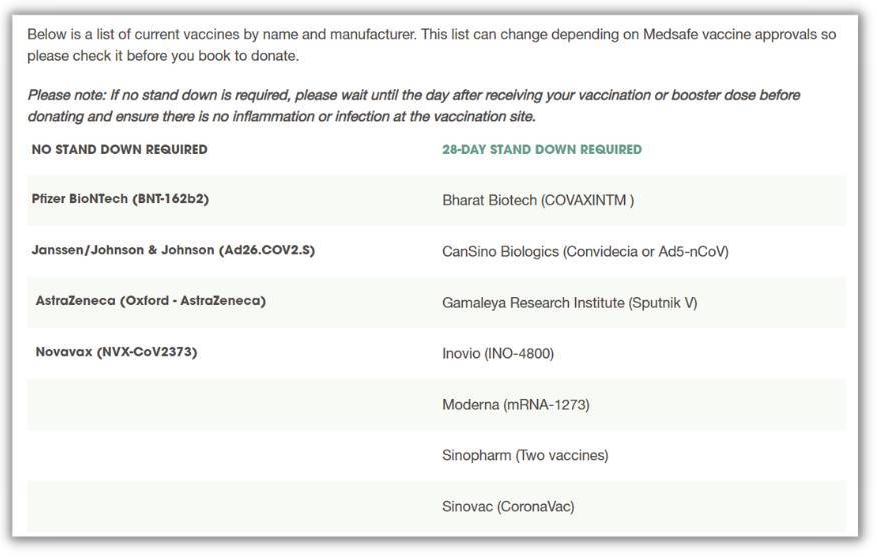
A Precedent Exists
Overseas Covid vaccine options are not the only vaccines that qualify for a stand-down period. The following table outlines the other NZ Vaccination Schedule products that require stand-down periods between 7-28 days.
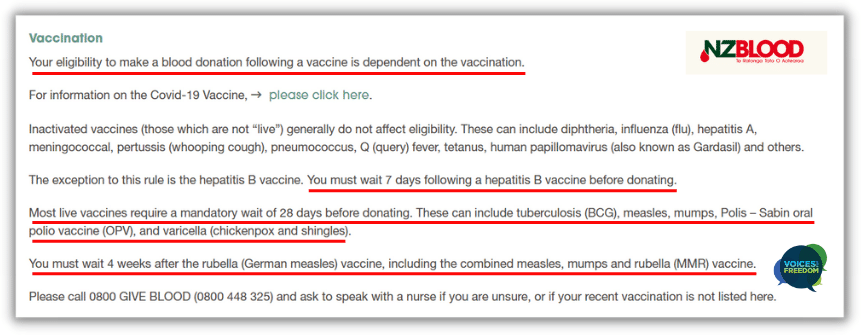
NZ expert Dr. Nikki Turner is on record for publicly spreading the misinformation that no such stand-downs exist. Watch the video HERE and SHARE it in your networks.
The NZ Blood Service (NZBS) Responds
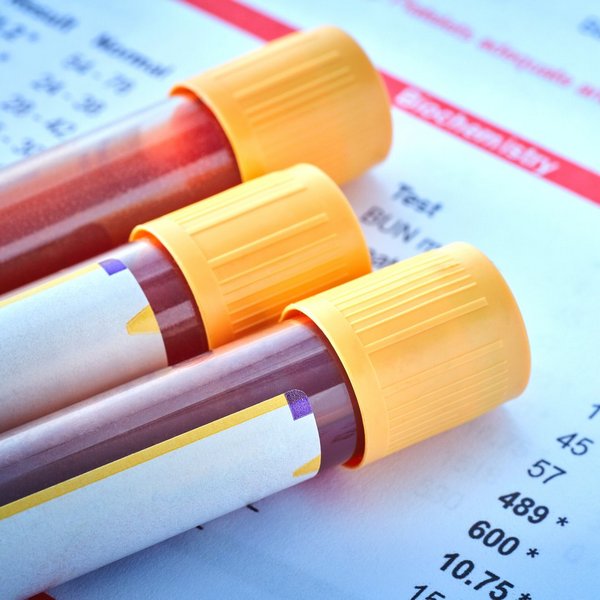
The NZBS was approached for comment regarding the April 2021 research proving the presence of spike protein in the plasma of the recently vaccinated. Requests were made for them to disclose the measures they were taking to:
Identify and tag vaccinated blood in their systems.
Mitigate the risk of toxicity from spike protein in donated blood of the recently vaccinated.
Engage in further research in this space.*
Their response was deeply rooted in the official narrative, with NZ Blood Service’s Transfusion Medicine Specialist, Dr. Richard Charleworth, unwilling to entertain or investigate potential hazards and risks. He ignored the emerging science and outright dismissed the evidence-based concerns.
It is the opinion of VFF that NZBS’s position is negligent and reckless towards the public health of New Zealanders.
While the NZBS Sat on Their Hands…

What has been known for the past 18 months
- To meet a request from the Japanese health authorities, Pfizer conducted a biodistribution study investigating where vaccine components travelled and concentrated in the body. This study showed the pooling of the lipid nanoparticles (the fatty outer layer surrounding the mRNA portion of the vaccine solution) within many organ systems, including the ovaries, liver, spleen, etc. This animal research should have triggered a pause in the vaccination rollout until human safety studies could be completed.
- In April 2021, research covered by the USA’s Salk Institute confirmed the toxic properties of the spike protein, including its ability to induce cell damage. In animal studies, the hamsters used experienced damage to their lungs.
- Pfizer’s Covid-19 vaccine was designed to trigger the body to generate spike protein via synthetically created mRNA. While experts claim that the process of spike replication ceases after a couple of days, scientific evidence proves otherwise.
- Safety signals such as myocarditis and pericarditis emerged in early 2021. International health authorities, including NZ’s Ministry of Health (MoH), admitted the causal relationship with the mRNA vaccines later that year. Clearly, our health experts did not understand the mechanism for cardiac harm to occur before the NZ Government began widely promoting the Covid jab. It took the officially recognised deaths of at least two people and many cases of these supposedly ‘rare’ heart conditions to prompt our officials to issue a formal warning.
- Staining techniques and autopsies of recently vaccinated individuals detected spike protein associated with inflammatory lesions in the brain and heart. Further testing ruled out the potential for the spike protein to be present due to viral infection, as the protein marker (nucleocapsid) for natural illness was absent.
The Science
The articles below represent a selection of research highlighting issues relevant to the discussion surrounding the safety of donated blood from vaccinated individuals.
The studies and articles show:
- That the SARS-CoV-2 spike protein is toxic to cells.
- That spike protein induces an inflammatory response in the body and has been found in significant concentrations in the tissues of the deceased during autopsy.
- That after infection, statistically significant quantities of spike protein have been found in immune blood cells for 15 months.
- That spike protein can interfere with the body’s ability to prevent blood clots from growing and becoming problematic.
- That mRNA and spike protein has been found in vaccine recipients’ blood, lymph nodes, and organs for weeks and months post-vaccination.
- That mRNA has been found in the breast milk of vaccinated mothers.
SARS-CoV-2 Spike Protein Impairs Endothelial Function via Downregulation of ACE 2
This animal study shows that the spike protein alone can cause damage to the inner cellular lining of arteries, veins, and capillaries.
Relevance: Spike protein can damage cells.
Question: If spike protein is present in donated blood used for blood transfusions in physically vulnerable patients, could the spike protein then cause damage to the patient’s inner cellular lining of their arteries, veins, and capillaries?
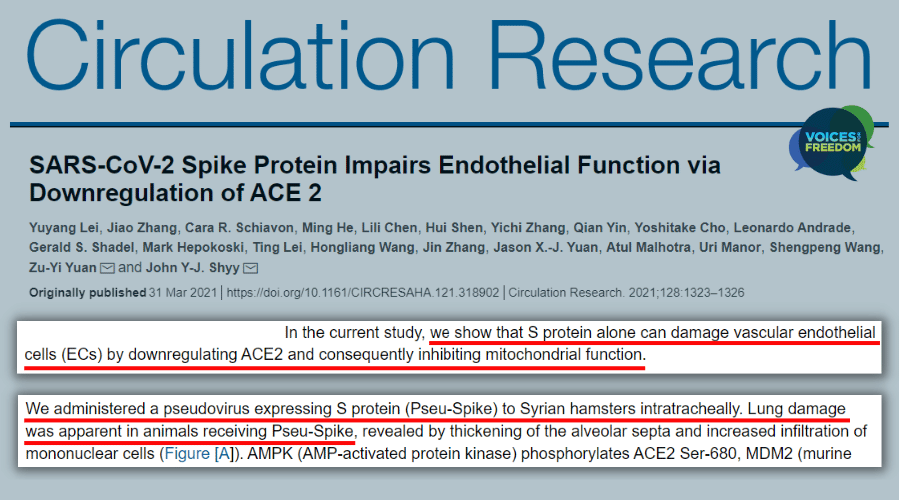
Persistence of SARS CoV-2 S1 Protein in CD16+ Monocytes in Post-Acute Sequelae of COVID-19 (PASC) up to 15 Months Post-Infection
This study shows that the spike protein remained present in a statistically significant number of innate immune cells responsible for maintaining vascular function for up to 15 months.
Relevance: Spike protein can damage cells. Spike protein can persist in certain immune cells for more than a year. Donated blood is not screened for the presence of spike protein, which has the potential to cause harm to the donor recipient.
Question: If spike protein is present in donated blood used for blood transfusions in physically vulnerable patients, could the spike protein then cause damage to the patient’s inner cellular lining of their arteries, veins, and capillaries?
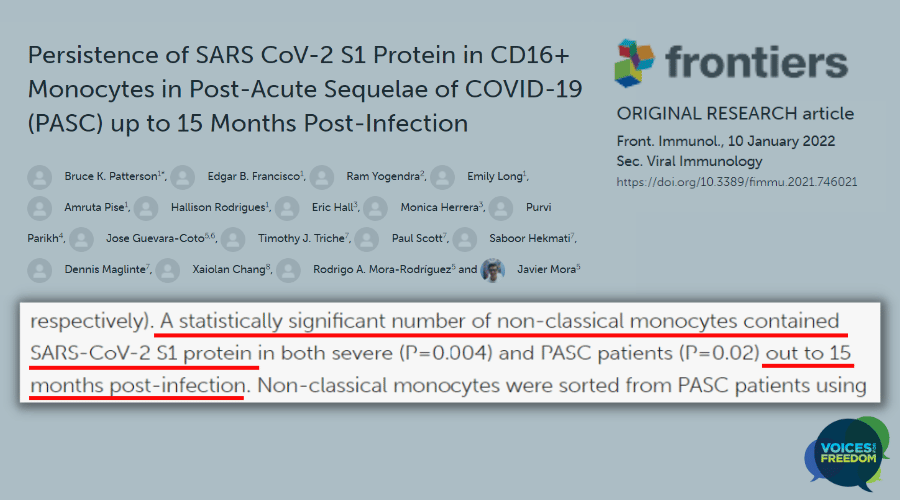
SARS-CoV-2 spike protein S1 induces fibrin(ogen) resistant to fibrinolysis: implications for microclot formation in COVID-19
This study indicates that the spike protein can impair the body’s ability to break down blood clots, resulting in persistent large blood clots.
Relevance: Spike protein can damage cells and impair the body’s ability to clear blood clots. Spike protein can persist in certain immune cells for more than a year. Donated blood is not screened for the presence of spike protein, which has the potential to cause harm to the donor recipient.
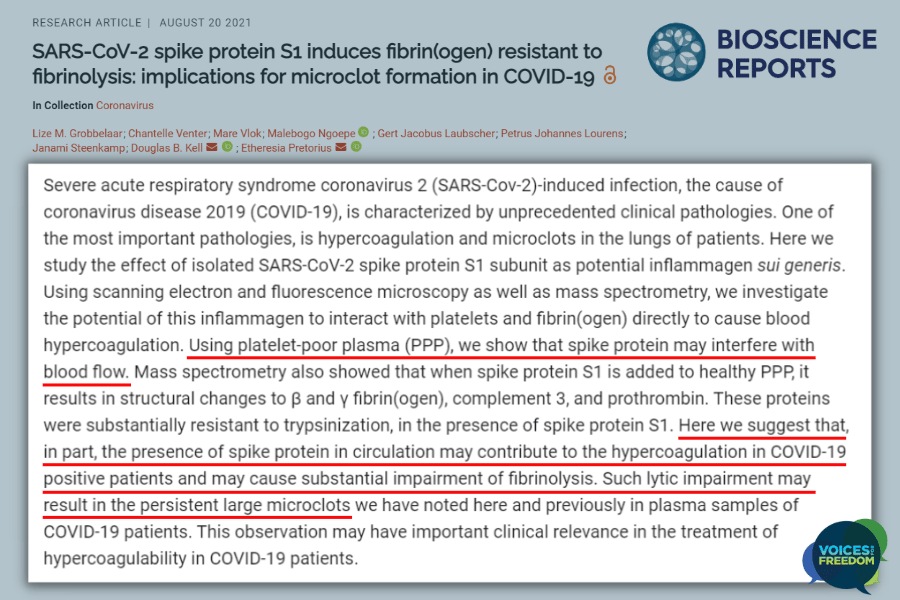
Vaccine mRNA Can Be Detected in Blood at 15 Days Post-Vaccination
This study shows that vaccine mRNA remains in the systemic circulation of vaccinated people for at least two weeks. The authors suggest that spike protein continues to be expressed in susceptible cells and tissues during this time.
Relevance: Spike protein can damage cells and impair the body’s ability to clear blood clots. mRNA can remain in systemic circulation for two weeks. Spike protein can persist in certain immune cells for more than a year. Donated blood is not screened for the presence of spike protein or mRNA, which has the potential to cause harm to the donor recipient.
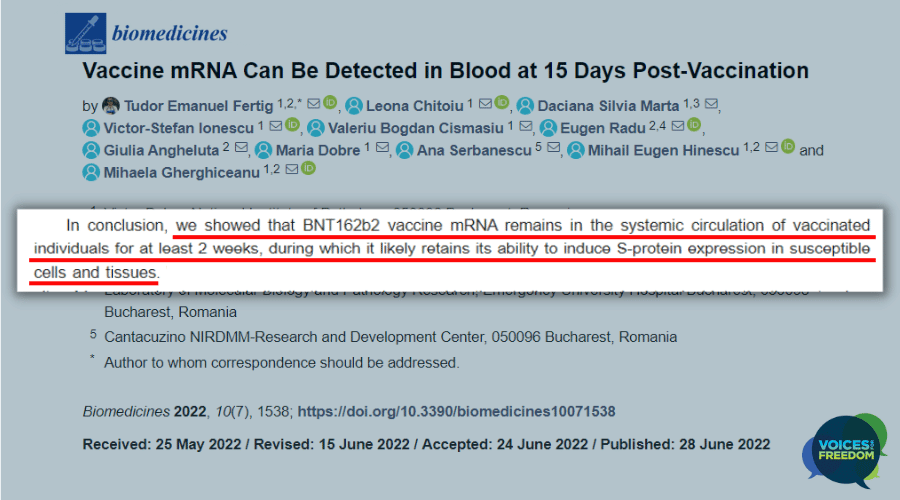
Immune imprinting, breadth of variant recognition, and germinal center response in human SARS-CoV-2 infection and vaccination
Germinal centers (GCs) are part of the lymphoid organs responsible for the body’s immune response. Vaccination stimulates the production of robust GCs shown to contain vaccine mRNA and spike protein for up to eight weeks after vaccination.
Relevance: Spike protein can damage cells and impair the body’s ability to clear blood clots. Studies show that mRNA can remain in systemic circulation for two weeks and mRNA and spike protein is present in germinal centers for up to eight weeks. Spike protein can persist in certain immune cells for more than a year. Donated blood is not screened for the presence of spike protein or mRNA, which has the potential to cause harm to the donor recipient.
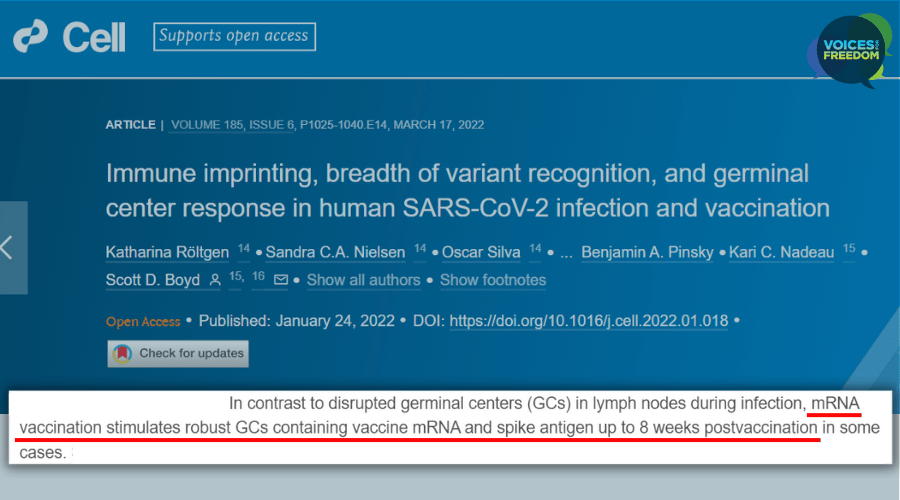
Detection of Messenger RNA COVID-19 Vaccines in Human Breast Milk
This research letter describes the presence of vaccine mRNA in the human breast milk of lactating mothers for up to 45 hours post-vaccination.
Relevance: Spike protein can damage cells and impair the body’s ability to clear blood clots. Vaccine mRNA is designed to express spike protein within the cells of the vaccinated individuals. Research shows that recently vaccinated breastfeeding mothers can pass mRNA through their breastmilk to their infants. Studies show that mRNA can remain in systemic circulation for two weeks and mRNA and spike protein is present in germinal centers for up to eight weeks. Spike protein can persist in certain immune cells for more than a year. Donated blood is not screened for the presence of spike protein or mRNA, which has the potential to cause harm to the donor recipient.
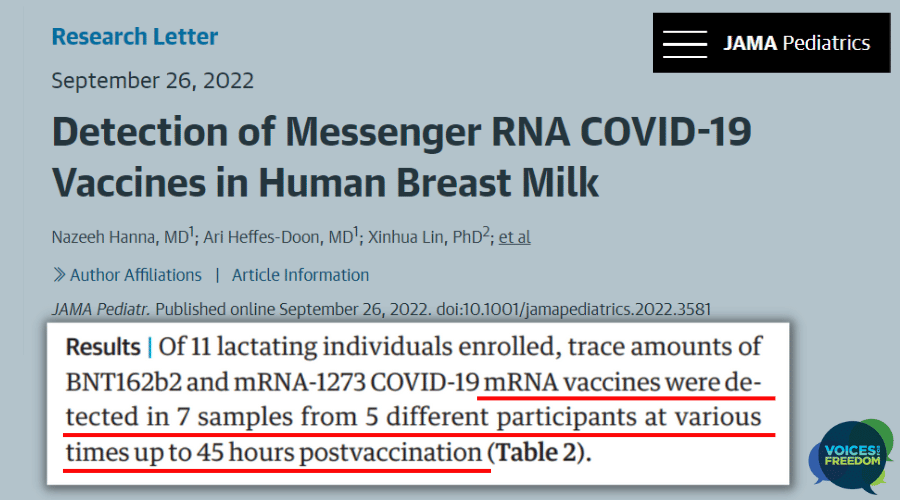
A Case Report: Multifocal Necrotizing Encephalitis and Myocarditis after BNT162b2 mRNA Vaccination against COVID-19
This study identified spike protein within the brain lesions of a triple-vaccinated man during his autopsy. The authors specifically note that the spike had to be vaccine-derived due to the absence of nucleocapsid (the viral protein coat surrounding the genome).
Relevance: Spike protein can damage cells, trigger inflammation, and impair the body’s ability to clear blood clots. Vaccine mRNA is designed to express spike protein within the cells of the vaccinated individuals. Studies show that mRNA can remain in systemic circulation for two weeks and mRNA and spike protein is present in germinal centers for up to eight weeks. Spike protein can persist in certain immune cells for more than a year. Donated blood is not screened for the presence of spike protein or mRNA, which has the potential to cause harm to the donor recipient.
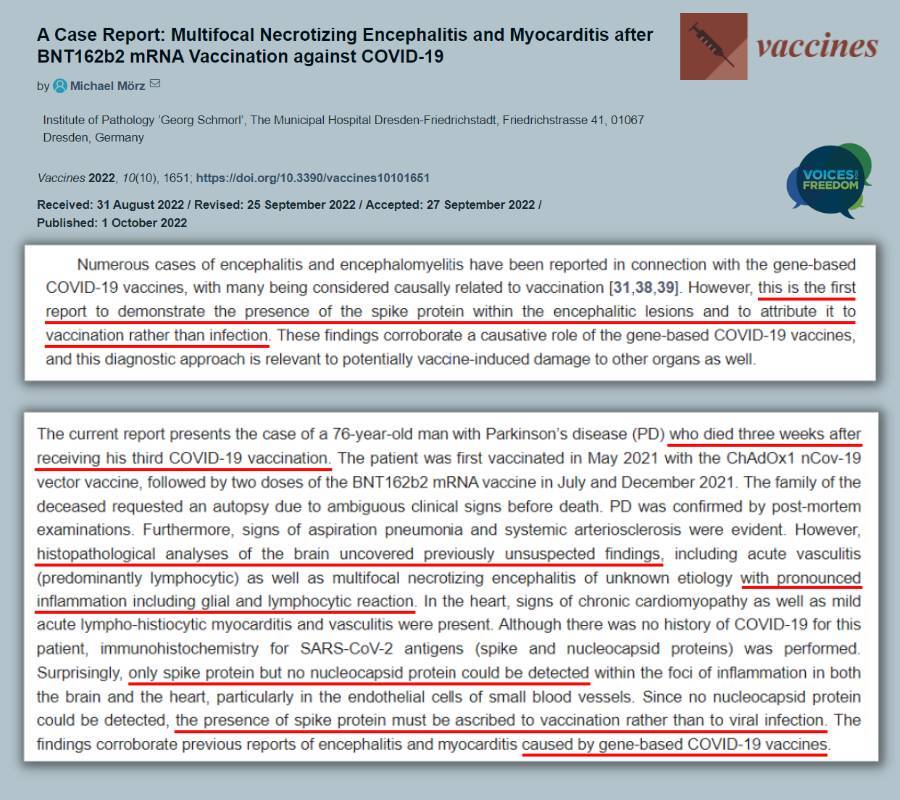
Sample Letter to NZBS

Change happens when good people take action and collectively apply pressure on topics of importance.
The NZ Blood Service is failing New Zealanders with their decision to opt-out of the discussion about the safety of vaccinated blood donations.
If you feel strongly about this issue, we encourage you to write to the NZBS to respectfully urge them to seriously investigate the evidence of safety signals in this space.
Contact the NZBS with your concerns (by email or telephone). You may wish to use the following template:
Good Morning/Afternoon,
The safety of Covid-vaccinated donor blood is important to many New Zealanders.
Ensuring policy is based on scientific evidence rather than assumption is of utmost importance.
The precautionary principle must be applied, as it is in other instances where stand-downs or exclusions apply.
I have included the following excerpts from scientific research highlighting safety signals relevant to blood donation and use in New Zealand.
Please take the time to read the studies linked below and take steps to initiate further research on the safety of spike protein, vaccine mRNA, and lipid nanoparticles present in donated blood.
In the meantime, it would be prudent to:
impose a stand-down period for recently Covid-vaccinated donors as already occurs for individuals who have received seven different Covid vaccines, the MMR, BCG, chickenpox, shingles, hepatitis B, and oral polio vaccines. label donated blood with vaccinated or unvaccinated tags.
Study Links:
[Insert your links and excerpts here]
Regards,
Your Name
Thanks for reading and sharing! Remember to sign up to our mailing list to keep up with the latest news.
If you value what we are up to at Voices and would like to support our ongoing work you can donate to us and support our nationwide public education campaigns (webinars, flyers, billboards...) and other initiatives to speak up and push back for your freedoms.




